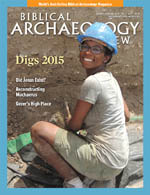On a personal note, on December 19th, my oldest daughter Kate returned home from serving an 18 month LDS mission in the country of Chile. Having her home again has been an incredible experience for me and my family. For those who read the book Authoring the Old Testament: Genesis-Deuteronomy, this is the daughter I dedicated the work to saying: “To my daughter Kate Bokovoy currently serving a mission in Rancagua, Chile. You exemplify the fact that faith, love, service,... Read more















